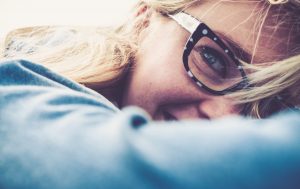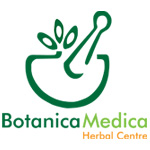
Menopause typically occurs around the age 45-55 but can occur to women before the age of 40 when it is called early menopause. Menopause can also occur through surgery to remove ovaries or through treatment for cancer such as chemotherapy or radiotherapy to the lower abdomen.
Prior to menopause which is defined as the last period most women will experience perimenopause and this is a time when hormonal fluctuations will often cause symptoms such as:
Feeling an increase in anxiety, mood swings, lack of tolerance, depression and general flatness in mood
Insomnia
Aching joints
Feeling hot as well as hot flushes and night sweats
Experiencing dry itchy skin and sometimes the sensation of creepy crawlies on the skin
Low libido and dry vagina. Sometimes an increase in vaginal infections
Feeling the need to go the toilet to urinate frequently and urgently
Weight gain
Every woman experiences menopause uniquely and understanding the symptoms and managing the symptoms can ease the process. It should be stated that menopause is a natural process and is not a disease.
Post menopause (after menopause) the usual problems of ageing such as Cardiovascular disease, loss of bone (osteoporosis), loss of muscle (sarcopaenia) and brain health should be the focus of health interventions and prevention programmes.
Women who have experienced sudden menopause due to medical treatment will need special support from a health professional who understands her unique issues. Many women with Oestrogen + breast cancer are also prescribed anti oestrogen drugs such as Tamoxifen and aromatase inhibitors which can increase symptoms such as hot flushes, bone pain and vaginal dryness. This significantly reduces quality of life.
Looking at the options:
Natural options/phytoestrogens
Phytoestrogens are plant hormones which are similar to Oestrogen but much weaker. It is impossible to have a diet without phytoestrogens as all plants contain phytoestrogens. If you were to have a diet devoid of phytoestrogens you would be a meatatarian (no vegetables at all!). We know that the most anticancer diet is a plant based diet and plant based diets are full of phytoestrogens. The main phytoestrogens studied for menopause are isoflavones and lignans found in soy and flax, grains, cabbage, legumes and lots more. A high consumption of these things may modestly reduce hot flushes, decrease bone loss and help vaginal dryness but not help night sweats. A combination of herbs, diet, exercise, meditation is usually needed.
Some practical adjustments to lifestyle can also help enormously such as reducing alcohol and hot drinks like coffee which will increase hot flushes. Not taking on too much and reducing stress as stress worsens menopausal symptoms. Practicing yoga and mindfulness meditation are excellent. Increasing weight bearing exercise and eating a diet high in whole plant based foods and avoiding processed food to manage weight and reduce bone loss. Increasing Flax seed in the diet.
Soy
Recently a study on 200 women taking soy isoflavones compared to women taking no menopausal therapy showed that soy may be beneficial in bone loss through the menopause and had a significantly beneficial effect on cardiovascular risk but it had a negative effect on thyroid function so
Women with thyroid problems should probably avoid it and women taking it should have thyroid hormones monitored.
There are numerous studies showing soy will reduce hot flushes and help vaginal dryness over time and the majority of studies on humans and animals show that soy is protective for breast cancer especially in Asian populations. This is thought to be because of the high intake of soy by Asians.
Some studies in vitro (in a Petri dish) indicate that soy phytoestrogens could increase the risk of oestrogen receptor positive cancer. This does not seem to be the case when humans eat it.
If you want to eat soy my recommendation is that it be non GMO and organic.
Herbs
There are numerous herbs which help with the symptoms of menopause and a combination of them which is specific to the patient is the preferred option.
St John’s Wort is the most studied herb for depression and anxiety and it has been studied in menopause. It is beneficial in hot flushes and of course the flat mood, depression and anxiety symptoms as well. It cannot be taken with antidepressants or chemotherapy and numerous other drugs so best to check with your herbalist or Dr If you are taking medication.
Black cohosh is the most studied herb used for hot flushes, promoting sleep and is safe for use for patients with breast cancer and prostate cancer. In fact, seems to be beneficial in a number of trials as it inhibited growth of breast cancer cells in vitro (the Petri dish) but more importantly in human clinical trial it did not increase breast density and did not promote endometrial growth of the uterus after using it for 6 months.
Concerns over its effect on the liver prevail as a very small number of women developed liver disease after using it. It is thought to be a possible allergic hepatitis. To put this in perspective there were 55 cases of suspected liver issues worldwide and there are at least 350 million doses of Black cohosh taken daily. Equally, the most common cause of liver failure in this country is from Paracetamol (Panadol). If you have pre-existing liver problems use with caution and with the support of a medical professional or well qualified herbalist.
Shatavari, Kudzu, Sage, wild yam and liquorice are also options depending on your situation.
Herbs which are beneficial to mood also help menopausal symptoms generally and they include Saffron, Lemon balm, Lavender, Hops, Withania and Rehmania.
Best to consult with a medical herbalist to get the best and safest results.
Medical options:
HRT
Oral HRT with combined oestrogen and progestogens (synthetic) for women who still have a uterus as oestrogen alone can increase the risk of uterine cancer. Not recommended for women with a history of breast cancer.
Patches of combined Oestrogen and progestogens (synthetic) has a slightly higher safety profile when it comes to side effects. Not recommended for women with a history of breast cancer.
Oestrogen creams or tablets for vaginal and urinary symptoms inserted into the vagina. Have a local effect.
Tibolone (a synthetic hormone which acts like oestrogen, progesterone and testosterone). Not recommended for women with a history of breast cancer.
Bioidentical hormones are mixtures of hormones prescribes by Doctors and made in compounding pharmacies. The can contain varying mixtures of oestrogen, progesterone and testosterone in cream, troche, drops, lozenge or capsules. Further research and regulation is needed as these preparations are not regulated by the TGA. It is not known if the compounded progesterone protects the lining of the uterus and replacement with these compounds should probably not be used by women who have a history of breast cancer. Women should talk to their Doctor about their individual risk and benefit profile.
There are numerous options and the choice is growing almost daily. Women should consider seeing a Dr who specialises in women’s health and a Naturopath or Herbalist who specialises in women’s health to understand all the options and issues and make an informed choice for her unique situation.
References:
Franco et al, 2016. Use of plant based therapies and menopausal symptoms: A systematic Review and Meta-analysis. Jama: June. 21-315(23):2554-63
Drew. D, Bucher. K, Zahner. C, 2015. A systematic review of non-hormonal treatments of vasomotor symptoms in climacteric and cancer patients. Springer plus 4:65 pub online.
Ghazanfapour M et al. 2016. Effects of flax seed and Hypericum perforatum on hot flash, vaginal atrophy and estrogen-dependant cancers in menopausal women: a systemic review and meta-analysis. J Phytomed May –June.6 (3):273-83
ArjmandiB et al. 2001. The role of phytoestrogens in the prevention and treatment of osteoporosis in ovarian hormone deficiency.J AM Coll Nutr. 2001 Oct 20(5 suppl):398S-402S.
Eden. J. 2016. Endocrine dilemma: Managing menopausal symptoms after breast cancer. JAMA
Wu et al 2008. Soy intake and breast cancer riskin Singapore Chinese Health Study. Br J Cancer. 2008 Jul 8:99(1):196-200
Jean Hailes Foundation –Menopause. https://jeanhailes.org.au .
Photo by StockSnap.io
08 8271 1827
info@botanicamedica.com.au

Recent Comments